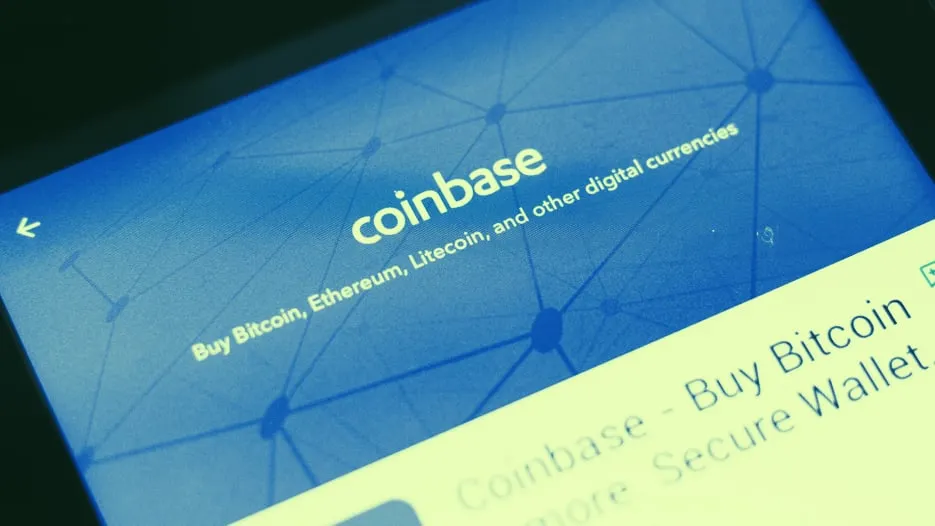Having won the battle for the hearts and minds of consumer and institutional investors—with more than $20 billion in custody—it looks like giant crypto exchange Coinbase is gearing up to be the Google of the decentralized web.
With its acquisition last week of Distributed Systems, San Francisco-based Coinbase wants to offer a simple way for people to sign into decentralized apps and identify themselves, while maintaining control of their privacy—tapping into the main benefits of the new, emerging web.
At the turn of the century, Google became the onramp to the nascent Web by making it easy for people to find things on the chaotic, sprawling Internet. Search turned out to be the killer app. But Web3 is turning out to be an even more complex Internet. Though the putative benefits of distributed apps—security, privacy, censorship resistance and far greater user control—are alluring, so far, consumer uptake has been slow. That's partly because new, micropay-as-you-go dapps are disconcerting ("Wait—I'm paying for this?") and hard to use.
Once regulations are set, we could see the market grow 10x—easily—if institutional money is able to enter the system.” Forrest Whaling, head of marketing at Aurora
It adds up to a massive opportunity for Coinbase, which reportedly brought in $1 billion in revenue last year, since people are already storing their crypto there.
“Our mission is to create an open financial system for the world,” says the Coinbase website. Its aim is for anyone with a smartphone to make payments as easily as sending an email. To do this, it’s creating a one-stop solution for storing cryptocurrencies, verifying user identity and connecting with the decentralized web.
Coinbase CEO Brian Armstrong is, obviously, aware of the parallels between now and then. He claims that the decentralized web is getting more usable every day but admits that a long road stretches ahead toward an open financial network.
Amit Jasuja, CEO at Trusted Key, a rival blockchain-based identity service, welcomed the competition. “Seeing them in this space makes me feel good—it continues to provide more validation for the identity market using blockchain technology,” he says.
Coinbase doubles down on non-custodial service
Also last week, Coinbase rebranded its popular, mobile crypto-wallet/encrypted chat/browser Toshi to “Coinbase Wallet.” Users will be able to explore the decentralized web and spend their coins in dapps. Interestingly, the wallet is non-custodial, meaning users control their private keys, keeping ownership of their money, and don’t need to store their crypto on Coinbase.
“Everyone will own a crypto wallet that allows them to access decentralized applications and that wallet will be their gateway to the open financial system,” says Siddharth Coelho-Prabhu, product lead for Coinbase Wallet. By providing a safe on-ramp to the myriad of decentralized applications, the wallet will expand the crypto market and provide more income for Coinbase’s other services and dapps in general.
Forrest Whaling, head of marketing at decentralized financial platform Aurora, says, “Right now there is a lot of uncertainty in the market, but once regulations are set, we could see the market grow 10x—easily—if institutional money is able to enter the system.”
Fight for control over the next web
Needless to say, the battle for Web3 market share is just getting started. Facebook has already set up a blockchain division in May to examine the potential of blockchain. Indeed, its generalissimo, David Marcus, Marcus stepped down from his position on Coinbase’s Board earlier this month, citing a potential conflict of interest.
Google has partnered with two companies, digital asset platform Digital Asset and blockchain-as-a-service BlockApps, for consumers to create enterprise-ready blockchain solutions on Google Cloud. This will include integration with Hyperledger and Ethereum. Per CBInsights, Google is the second-largest corporate investor in blockchain companies (behind a Japanese financial services company, SBI Holdings.) Notably, Google has invested in asset-management platform LedgerX and global payments service Veem.
Amazon, via its AWS and Kaleido services, already offers turnkey blockchain services to businesses. IBM is rolling out it’s blockchain for business service delivered via the IBM cloud and Microsoft is supporting Bakkt, a crypto ecosystem created by Intercontinental Exchange, owners of the New York Stock Exchange. Even, the trillion-dollar big dog of techland has been sniffing around the blockchain park. Looks like World War Web3 has only just begun.
Read Next: Daily Debrief, September 6, 2018

